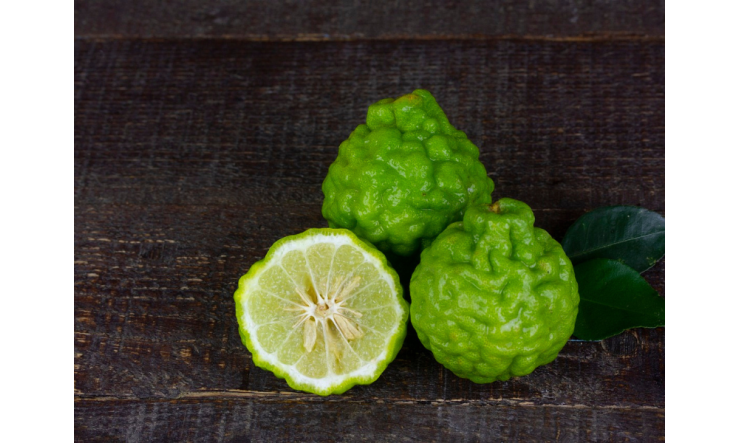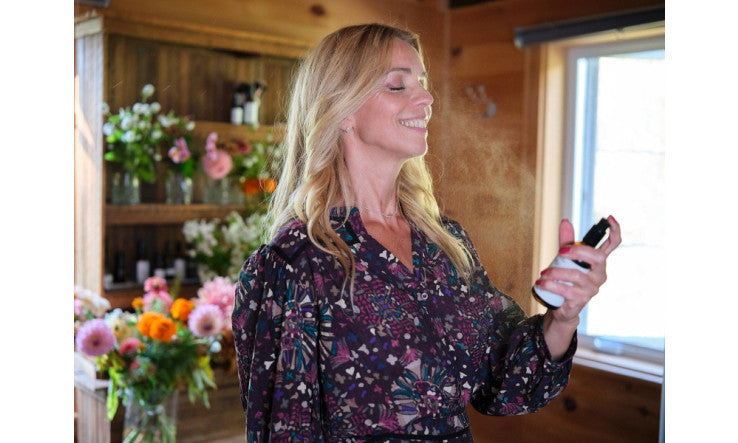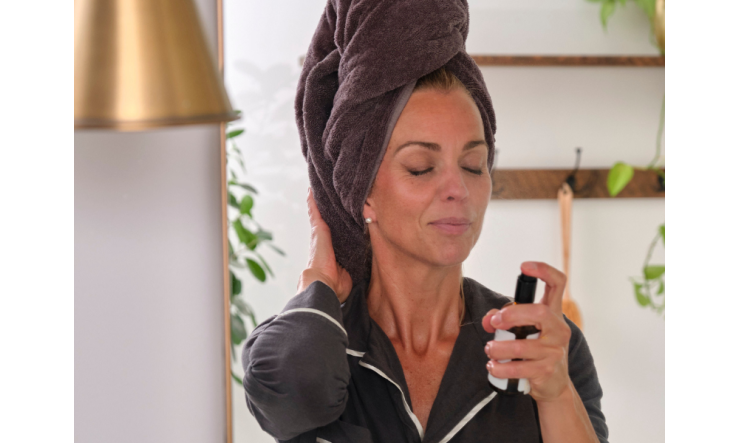Meditation is much more than just a relaxation practice. It is a powerful method for reducing stress, improving focus, and promoting emotional balance in our daily lives. Whether in a personal or professional setting, meditation can transform the way we handle everyday challenges, bringing calm and mental clarity.
But did you know that incorporating essential oils into your meditation routine can multiply its benefits tenfold? Essential oils, thanks to their properties, are able to intensify the meditative experience. They help create an atmosphere conducive to relaxation, stimulate concentration, and strengthen spiritual connection.
In this article, I invite you to discover how to enrich your practice with four essential oils. You'll find synergy recipes specially designed to support you in your quest for serenity and inner harmony.
Whether you're new to aromatherapy or an avid fan, this article will help you explore new dimensions of meditation by incorporating the natural benefits of essential oils.
Meditation Basics: Well-being, postures and advice
The Proven Benefits of Meditation for Mind and Body
Meditation is recognized for its many benefits, both mentally and physically. Scientific studies have shown that regular meditation can reduce stress, decrease anxiety, improve sleep quality, and even strengthen the immune system. By meditating, you learn to better manage your emotions, develop greater resilience in the face of challenges, and cultivate a more positive attitude in everyday life.
Professionally, meditation can improve focus, productivity, and creativity. It helps maintain a clear mind, make more informed decisions, and reduce workplace stress. Whether you're trying to achieve your personal or professional goals, incorporating meditation into your daily routine can truly transform your life.
Choosing the right posture for meditation
Contrary to popular belief, you don't have to sit cross-legged to meditate. Posture is an essential component of meditation, but above all, it must be comfortable for you. The goal is to find a position that allows you to remain alert and relaxed, without creating tension in your body.
Among the alternatives to the cross-legged posture, you can opt for:
- Sitting on a chair: Make sure your feet are firmly on the floor and your back is straight. This position is ideal if you have difficulty sitting on the floor or if you meditate at work.
- Lie on your back: This pose, called the corpse pose or Savasana, is perfect for guided meditations or those focused on deep relaxation. Make sure you don't fall asleep!
- Walking meditation: A moving meditation can be very beneficial, especially for those who have difficulty sitting still. Walk slowly, mindfully taking each step and breathing.
Choosing the right posture for meditation is essential to maximizing the benefits of your practice. Regardless of the posture you choose, the important thing is to maintain a straight spine, relax your shoulders, and allow your body to relax.
Tips for Effective Meditation
To get the most out of your meditation session, it is important to follow some practical tips:
- Be consistent: Try to meditate at the same time every day to create a habit. Even 5 minutes a day can make a big difference.
- Create a dedicated meditation space: Set up a quiet, pleasant corner where you can isolate yourself without being disturbed.
- Manage distractions: Before you begin, turn off your phone and close the doors to minimize interruptions. If thoughts arise, let them pass without dwelling on them.
- Focus on your breathing: Breathing is an effective anchor for staying focused. Focus on the rhythm of your breathing, inhaling deeply and exhaling slowly.
- Use essential oils: Essential oils can enhance your focus and relaxation. Diffuse them or apply them diluted topically before beginning your meditation.
4 meditative essential oils
Sweet Orange: The oil of joy and relaxation
Sweet orange essential oil, extracted from orange peel, is particularly rich in limonene, a biochemical compound known for its calming and relaxing properties. Sweet orange is often used to create a joyful and serene atmosphere, making it an ideal ally for meditation.
The limonene in Sweet Orange acts directly on the nervous system, promoting a decrease in stress levels and an improvement in mood. When you meditate with this essential oil, you can experience a deep sense of calm and well-being, making it easier to enter a meditative state.
- Helpful Tip: Diffuse 3 to 4 drops of Sweet Orange essential oil in the room before beginning your meditation session. You can also add a drop to a tissue and inhale it directly for a quick effect.
- Precautions: Not suitable for pregnant women under 3 months - Not suitable for infants under 3 months - Dilute before applying to the skin - Do not apply to the skin before sun exposure, as orange oil is photosensitizing.
Bergamot: The oil of emotional balance
Bergamot essential oil is extracted from the zest of the bergamot tree fruit. It is particularly rich in linalyl acetate and limonene, which gives it balancing and calming properties. Bergamot is known for its effectiveness in regulating emotions, calming the mind, and dispelling anxiety, making meditation deeper and more centered.
Thanks to its harmonizing effects, Bergamot oil is perfect for meditations focused on letting go and emotional balance. It helps soothe mental tension, open the mind, and create an inner space of peace.
- Helpful Hint: Apply 1 to 2 drops of bergamot essential oil diluted in a carrier oil to your solar plexus or wrists before meditating. This localized application will help you refocus your emotions and enter a meditative state more easily.
- Specific precautions: Prohibited for pregnant women under 3 months and breastfeeding - Prohibited for children under 6 years old - Dilute before application to the skin - Do not apply to the skin before sun exposure, because bergamot oil is photosensitizing.
Incense: The oil of spirituality and concentration
Frankincense essential oil, extracted from the resin of the Boswellia tree, has been used for thousands of years for its spiritual and meditative properties. Rich in monoterpenes, frankincense is known for its effects on concentration, tranquility of mind, and spiritual elevation.
Frankincense promotes an atmosphere conducive to deep meditation, helping to calm a restless mind and create a deeper connection with oneself or a spiritual dimension. It is an ideal essential oil for mindfulness or spiritually oriented meditations.
- Practical advice: Diffuse 3 to 4 drops of Frankincense in your meditation space or inhale directly from the bottle before and during meditation to strengthen the concentration and depth of your practice.
- Precautions: Not suitable for pregnant women under 3 months - Not suitable for children under 6 years old - Dilute before applying to the skin - Not recommended for people suffering from respiratory allergies or asthma.
Sandalwood: The Oil of Inner Harmony
Sandalwood essential oil is extracted from the heartwood of the sandalwood tree. It is particularly rich in sesquiterpenols, especially santalol, which is known for its stabilizing and balancing properties. Sandalwood is often used to promote inner harmony, emotional balance, and deep meditation.
This essential oil helps calm the mind, soothe disturbing emotions, and enhance a sense of inner peace. It is perfect for meditations focused on harmonizing the chakras or achieving a state of deep tranquility.
- Helpful Tip: Apply 1 drop of Sandalwood essential oil to your forehead or diffuse it during meditation to promote deep introspection and a sense of harmony.
- Precautions: Prohibited for pregnant and breastfeeding women - Prohibited for children under 3 years old - Dilute before application to the skin - Not recommended for people with an estrogen-dependent pathology.
Synergies for Meditation
Essential oils can be even more powerful when combined in synergies, creating blends that maximize their respective benefits.
“Calmness and Serenity” Synergy
This synergy is ideal for times when you need to calm a restless mind and create an atmosphere of inner peace. This combination offers a deeply soothing meditative experience.
Ingredients
- 3 drops of Sweet Orange essential oil
- 2 drops of Sandalwood essential oil
- 1 drop of true lavender essential oil
Preparation
- Mix essential oils in a diffuser.
- Or dilute them in 30 ml of neutral vegetable oil (such as Jojoba oil) for skin application.
Use
- Diffuse this synergy in the room before and during your meditation session to create a climate of serenity.
- If you prefer cutaneous application, apply 2 drops of the diluted preparation to the wrists or solar plexus before starting.
- Avoid cutaneous application before sun exposure due to the photosensitizing properties of Sweet Orange.
“Emotional Balance” Synergy
This synergy is ideal for times when you need to let go, manage emotions and create an inner space of calm and clarity.
This combination provides a deeply balancing meditative experience.
Ingredients
- 2 drops of Bergamot essential oil
- 2 drops of Sandalwood essential oil
- 2 drops of Frankincense essential oil
Preparation
- Mix essential oils in a diffuser.
- Or dilute them in 30 ml of neutral vegetable oil (such as Jojoba oil) for skin application.
Use
- Diffuse the synergy during meditation to promote emotional balance and a state of inner tranquility.
- For local application, apply 2 drops of the diluted preparation to the wrists or solar plexus.
- Avoid cutaneous application before sun exposure due to the photosensitizing properties of Sweet Orange and Bergamot.
Synergy Spiritual Connection
This synergy is designed for meditations that aim for a deeper connection with oneself or with a spiritual dimension. Frankincense, Sandalwood, and Bergamot combine to create an atmosphere conducive to introspection and spiritual elevation.
Ingredients
- 3 drops of Frankincense essential oil
- 2 drops of Sandalwood essential oil
- 1 drop of Bergamot essential oil
Preparation
- Mix the oils in a diffuser.
- Or dilute them in 30 ml of neutral vegetable oil (such as Jojoba oil) for skin application.
Use
- Diffuse this synergy in your meditation space to strengthen your concentration and promote deep introspection.
- For cutaneous application, apply 1 to 2 drops of the diluted preparation to the forehead or solar plexus.
- Make sure the room is well ventilated during diffusion. Avoid sun exposure after applying Bergamot to the skin.
General precautions
- Dilution: Always dilute essential oils before skin application to avoid irritation.
- Tolerance test: Before use, carry out a skin tolerance test by applying a small amount of the diluted synergy to the inside of the elbow and wait 24 hours to check for an allergic reaction.
- Medical Consultation: If you are pregnant, breastfeeding, or have specific medical conditions, consult a healthcare professional before using essential oils. Your doctor is the only primary care provider for your health.
- Avoid mucous membranes and eyes: Essential oils can cause severe irritation. In case of accidental contact, rinse thoroughly with a carrier oil, not water. Consult your doctor.
Incorporating essential oils into your meditation practice can transform and enrich your experience, allowing you to achieve a deeper state of relaxation, focus, and inner harmony.
It's more than just a wellness practice; it becomes a daily ritual to nourish your mind, body, and soul. By exploring the different ways to incorporate these natural essences into your routine, you can not only improve your quality of life but also discover new dimensions of inner peace and mental clarity.
Feel free to experiment with the synergy recipes and adjust your practice according to your preferences. Over time, you'll find that using essential oils in meditation becomes an essential part of your quest for well-being and balance.
Sources of information (bibliography):
Michel Faucon, Sensory Approaches in Aromatherapy, Dunod Edition, November 27, 2023, 992 p. ISBN: 9782100851362
Gilles Fournil, Faniel Alain, Olfactotherapy: Smell to feel better, Amyris Edition, March 16, 2012, 213 p., ISBN: 9782875520029
Maison Jacynthe disclaims all liability. All information contained on this page is not intended to replace justified allopathic treatment or to disregard the expertise of the medical profession. It is up to each individual to take charge of their own health, to inform themselves, and to make the necessary changes to improve their condition. Therapeutic supervision by a qualified health professional is obviously recommended.


































































Leave a comment